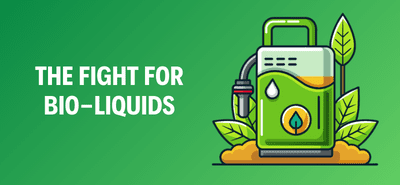Subtotal: £7.92
Bio Fuel – Algae Based Fuel For The Future?
Genetically modified blue and green algae is being touted as a miracle answer to the world’s energy problems which could one day fuel our cars and heat our homes.
Bioengineers have already developed algae that produce ethanol, oil and even diesel, ABC news reports. The only thing the organisms need are sunlight, CO2 and seawater.
Biochemist Dan Robertson is leading the project in a laboratory in Massachusetts. The head of research at US biotech firm Joule Unlimited says the organisms are as tiny as E. coli bacteria. He and his team have fine-tuned the genetic material so that when light passes through their outer layer, they excrete droplets of fuel.
The first tests of algae-based fuels are already being conducted in automobiles, ships and aircraft. The Rockefeller family and Microsoft founder Bill Gates are among the new technology’s investors.
“Commercial production of crude oil from algae is the most obvious and most economical possible way to substitute petroleum,” says Jason Pyle of the California-based firm Sapphire Energy, which is already using algae to produce crude oil.
“We have to grow algae like rice, in shallow patties of water on thousands of hectares.”
Sapphire expects one barrel of its green petroleum to cost between $70 and $100, significantly cheaper than petroleum, ABC reported.
The established oil industry is also interested in the technology. Exxon Mobile research and development vice president Emil Jacobs says oil from algae holds significant potential as economically viable, low-emission transportation fuel “and could become a critical new energy source.”
The algae is being touted by some as a potential solution to the world’s fuel problems. Crude oil supplies are finite and many industry experts believe easily extractable oil reserves have already been discovered and pumped from the ground, meaning the days of cheap crude, gasoline and heating oil are over.
Unlike corn and grains for ethanol, algae does not require farmlands. It could be farmed on large scales in deserts. Though it requires large amounts of CO2 during photosynthesis, it releases the same amount when the oil the algae produces is burned, making algae-based fuels climate neutral.
Robertson says there is enough non-arable land with enough solar radiation and enough CO2 and water sourcing in the world to make large-scale algae petroleum production viable.
He also says algae-based fuel could easily be pumped into the oil industry’s existing pipelines and refineries. Cars and aircraft would not have to be modified to accommodate the biofuel, he says.
Presumably heating oil boilers will also be equipped to use the new fuel source, potentially offering heating oil dealers and their customers a reliable, affordable and environmentally-friendly fuel source of the future.











